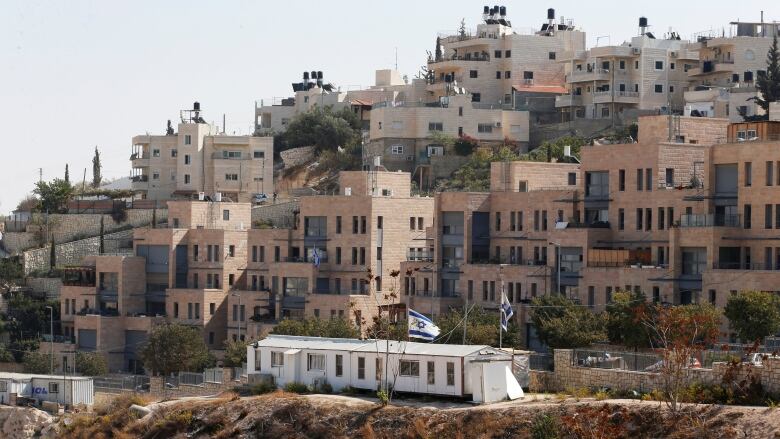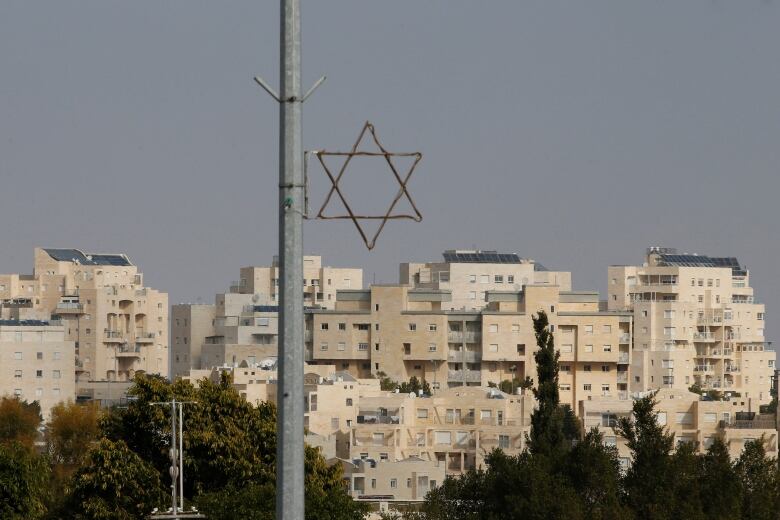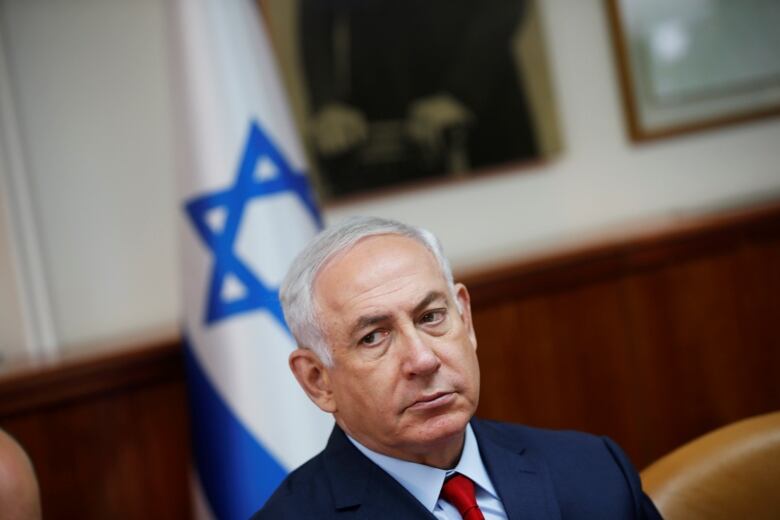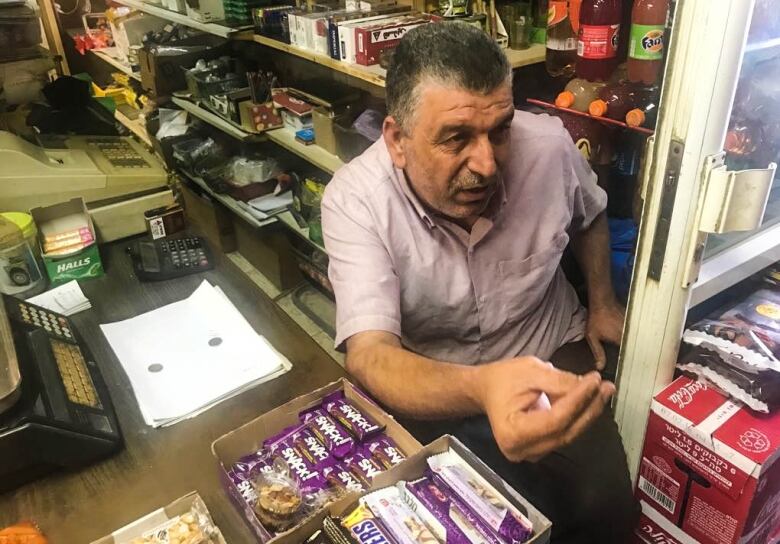Israeli settlers are skeptical of plans to build more settlement homes
'Announcements are nice, but bricks and mortar are what is needed,' says settlers' representative

The Israeli government is promising a construction boom, with the recent announcements of thousands of new housing units in Jewish settlements across the occupied West Bank and East Jerusalem.
The plans for more building in the Israeli-occupied West Bank have sparked the usual outrage from groups opposed to settlements. But this time, the pro-settlement camp isn't satisfied either it's worried that the plans won't be worth the paper they're printed on.
"Announcements are nice, but bricks and mortar are what is needed," said Oded Revivi, the international liaison for the Yesha Council, which represents Jewish settlers in the West Bank. The council wants even larger numbers of settlements to be built.

It appears Israeli Prime Minister Benjamin Netanyahu is again trying to walk the fine line of appeasing his base by promising more construction, while keeping international criticism of settlements at bay by quietly letting the number of new buildings actually built dwindle.
Here is a summary of recent proposed settlement activity:
- An Israeli planning committee proposed or approved nearly 3,400 new housing units across the West Bank, including 31 apartments in old city of Hebron, the volatile centre that has seen violent clashes between Israeli security forces and Palestinians. This is the first expansion of settlement units in Hebron in 15 years.
- Jerusalem planning officials approved plans to add 176 homes to the Nof Zion settlement in East Jerusalem, located in the Arab neighbourhood of Jabel Mukaber.
- The Israeli government approved plans earlier this year for the construction of the first new settlement in 20 years. The community of Amihai will house families who were removed from the illegal West Bank outpost of Amona, which was built on private Palestinian land.
- Netanyahu is backing what's become known as the "Jerusalem bill," legislation that would effectively annex 19 settlements around Jerusalem, making them a part of the city's boundaries.
'A do-nothing type of government'
The proposed building spree in the West Bank, according to political analyst Alon Pinkas, is "more political bravado than anything else," on the part of Netanyahu.
"Looking at the track record of this government, there's a wide gap between what they announce and what they practically do on the ground," said Pinkus, who is a former Israeli consul general in New York.
"It's a do-nothing type of government," he told CBC News from Tel Aviv.

Having faced that kind of criticism in the past, an Israeli government source told Israeli media that, "during 2017, approximately 12,000 housing units in different stages of planning and construction will be approved, about four times the amount in 2016. Whoever claims that this is not a significant improvement is misleading the public."
Threat to 2-state solution
Peace Now, a leftist Israeli group that opposes settlements, sees the recent government moves to expand housing units in the West Bank as a real and significant threat to the two-state solution to end the Israeli-Palestinian conflict.
"Not all plans are being promoted in the same pace," said Anat Ben Nun, Peace Now's director of external relations. "But we see construction happening on the ground."
"We're seeing the government breaking every rule in the book promoting settlement units in the most sensitive area for the two-state solution," she told CBC News. "So this is a very worrying phenomenon."

Most countries, including Canada, view settlements, built on land captured by Israel from Jordan in 1967, as illegal under international law. Israel disputes this characterization.
The Palestinians, who want to establish a future state on land where the settlements sit, have roundly opposed any expansion of new housing units.
Trump's take on settlements
The Obama Administration had been, at times, critical of Israeli settlement expansion. Some in Netanyahu's right-wing coalition government had hoped for a green light for new construction after Donald Trump was sworn in.
But Trump, who is trying to restart the Israeli-Palestinian peace process, told the Israeli newspaper Israel Hayom a month after taking office that he wanted the Israelis to "act reasonably" on settlement building.
Netanyahu vowed in August, while commemorating the 50th anniversary of Israel's occupation of the West Bank, that "we are here to stay, forever."
"We will not fold. We are guarding Samaria against those who want to uproot us. We will deepen our roots, build, strengthen and settle," he said, using the Jewish name for part of the West Bank, which is home to about 400,000 Israeli settlers.

When it comes to East Jerusalem, Netanyahu said in 2014, "there is wide agreement among the public that Israel has the full right to build the Jewish neighbourhoods of Jerusalem."
But Mahmoud Ebedat, a Palestinian shop owner in Jabel Mukaber, said the proposals to build 176 apartments in Nof Zion, near his convenience store, threaten his livelihood and existence.
"As long as the settlement is here, we have no security," he said. "The settlers make problems for us, because they want to force us out of here for good."












_(720p).jpg)


 OFFICIAL HD MUSIC VIDEO.jpg)
.jpg)



























































































